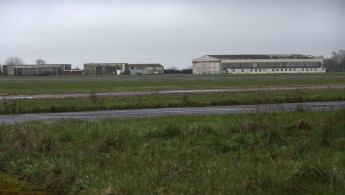UK Home Sec set to claim boat crossings are 'emergency' in push for controversial asylum accommodation
UK Home Secretary Suella Braverman is set to announce that small boat crossings are a national "emergency" in a bid to push through the use of controversial asylum accommodation.
Braverman has called for Wethersfield Airfield, a former military base, to be used to house asylum seekers at a time when thousands of arrivals wait in limbo for their claims to be processed.
The local council has strongly opposed plans for the Home Office to take over the airfield and petitioned the High Court for an injunction on grounds that the site is unsuitable given its isolation, lack of local services and the potential impact on local communities.
Lawyers representing the Home Office are expected to argue that the plan is legitimate because it falls under a law which allows the government to bypass local councils in "emergencies," according to the Independent.
"A rule known as Class Q allows local councils to be bypassed for developments on government land, including military bases, for the purpose of 'preventing an emergency, reducing, controlling or mitigating the effects of an emergency or taking other action in connection with an emergency'," wrote the British newspaper.
The threshold for this emergency provision is the existence of a "threat [of] serious damage" to human welfare.
A High Court judge will hear legal arguments from the Home Office, Ministry of Defence and the local council on Wednesday before making a decision over whether this case meets the threshold and Weathersfield can be used as asylum seeker accommodation.
There are widely reported concerns over Wethersfield's contamination risks, including undetonated explosives, ground contamination and asbestos.
However, the Home Office has already started to prepare to use the site, stating on their website that the base will "accommodate single adult asylum seekers" and "create new jobs and bring investment to the area".
The total number of people awaiting an asylum decision more than doubled between 2020 and 2022, jumping from 70,000 to 166,000, according to government data.
An increase in arrivals combined with delays in processing have created a backlog which means individuals can wait up to two years to have their interview for UK asylum.
Many are held in hotel accommodation. However, Braverman has been pushing for the use of more controversial sites - including barges and military bases - in order to reduce costs.
Refugee charities have argued that the way to solve the accommodation issue to is speed up processing, and create more humanitarian corridors.





 Follow the Middle East's top stories in English at The New Arab on Google News
Follow the Middle East's top stories in English at The New Arab on Google News


